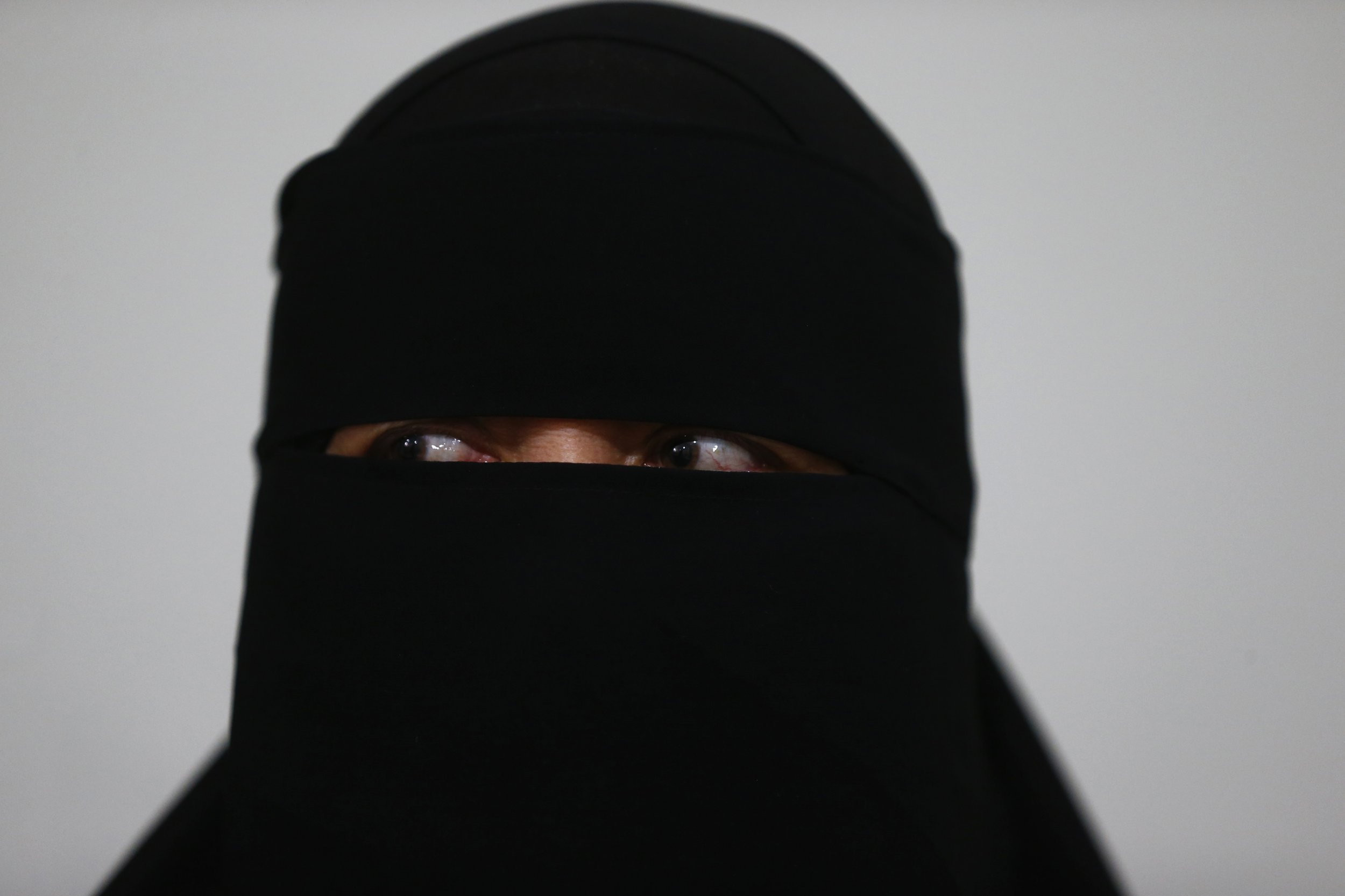
When France introduced a ban on the face veils worn by some Muslim women in 2011, lawmakers said it was intended to set them free from an obligation they viewed as contrary to the country's liberal, secular values.
But some of those women didn't see it that way. Samya, a Muslim woman living in Nice, was stopped by a police officer in her niqab—a full face veil with a narrow slit that exposes only the eyes—who told her she was being "provocative."
"Listen, madam," Samya told the officer. "I'm not doing anything provocative. I started wearing it about 17 years ago and I never used to encounter any problems before. It's you who are creating problems out of nothing."
Four years on and the anecdote, which was included in a 2013 report on the ban by the Open Society Justice Initiative, is relevant once again. The European People's Party—an influential group of center-right parties including the governing party of Germany—is now calling for a Europe-wide ban on the face veil in public places, "both for reasons of security and because seeing one another's faces is an integral part of human interaction in Europe."
But whatever the merits of moral or political arguments against the burqa (which is a veil that covers not only the face but the entire body) or the niqab, Samya's experience shows that state-enforced bans on the garments may struggle to change minds—and risk entrenching, or even exacerbating, certain positions.
Read more: Here's why Angela Merkel's party is considering a Burqa ban
France was the first European country to implement a no-ifs, no-buts full ban on wearing Islamic face veils in public. No woman, French or foreign, can leave the house with their face obscured by a veil; if they do, they risk a fine. It is thought that only about 2,000 women were wearing a face veil in France before the rule came into effect. Belgium instituted a similar ban in July 2011.
France's resistance to collecting census data by ethnicity—a result of a 1978 law introduced because many saw asking about race and ethnicity as a contradiction of the principle of equality for all French people—makes measuring precise effects of the ban difficult. But the 2013 report, which interviewed 35 women, found that it did little to boost their standing in society.
Only one woman in the sample removed her full-face veil and said that she was socializing more often. Many others described constraints on their movement, complaining of depression, anxiety, and deterioration of their physical health as a result.
Maleiha Malik, a professor of law at King's College, London, says that "the law is a barrier to integration," making it difficult for women to get jobs and meet people outside of their community.
Security is often given as another reason for banning veiling: Concerns are raised, for example, about the ability of the police or courts to identify and question suspects or witnesses. The European People's Party's call last weekend for a ban was contained within a wider motion about fighting Islamic extremism.
But Agnès de Féo, a sociologist and filmmaker who has studied the impact of the ban in France, told The Local in 2015 that it had had disastrous national security consequences. "Those who have left to go and fight in Syria say that this law is one of things that encouraged them," she said, "They saw it as a law against Islam." She concluded: "We created a monster."
Whatever their stated purpose, bans on Muslim dress are often more about asserting so-called "European values" of individual freedom, gender equality, and—in France's case—secularism. The populist parties that have brought anti-Islamic rhetoric into fashion across the continent (such as Geert Wilders's Freedom Party in the Netherlands or France's National Front) like to talk of a growing clash between Islamic and European civilization, in which Western values must be reinforced. "It boils much more down to culture," says Alan Coffee, a lecturer in political philosophy at King's College London.
But if bans are intended to persuade minority communities of the strength of Western values, they fail on those terms too, Coffee says: "The ban itself polarizes the cultural divide. You end up with a kind of culture war."
Malik agrees. The very notion of a draconian ban thrust upon women by the state goes against the kind of liberalism such a ban is ostensibly meant to promote, and looks hypocritical. That's particularly true when the law is brought about without listening to the communities it is aimed at. In Belgium, Malik says, there was no consultation with Muslims, while in France, just one woman addressed the commission who designed the law—and she was made to remove her face veil while she did so.
The European People's Party's call for a ban has no legal force; many European countries, Germany among them, would probably even be constitutionally unable of introducing one. But national governments would do well to be wary of following it—evidence suggests it will do little more than signal commitment to a set of values, rather than seriously helping to advance them.
Uncommon Knowledge
Newsweek is committed to challenging conventional wisdom and finding connections in the search for common ground.
Newsweek is committed to challenging conventional wisdom and finding connections in the search for common ground.
About the writer
Josh is a staff writer covering Europe, including politics, policy, immigration and more.
To read how Newsweek uses AI as a newsroom tool, Click here.








